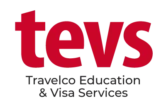Wants to know changes to the Canadian immigration express entry system?
Canada keeps updating on how it handles the immigration rules and the Express Entry by mainly managing the applications from skilled workers.
The system started as a digital platform to make the best out of immigrants to keep the process more user-friendly.
Anyway, now, in 2024, you really need to know about the newest changes because they’ve really switched up how they choose people and handle all the applications.
All these updates shows you how Canada wants to bring in the right workers while keeping their system fair and quick.
Table of Contents
ToggleChanges in the Context
Express Entry took a major change in January 2015. And totally made some amendments on how Canada handles all the immigration rules.
Before this, they just processed applications in order. By following the pattern as, whats comes first will be given out first.
However, that didn’t work out well.
This led to a huge waiting lists and people kept on waiting years for an answer.
As a matter of fact, this did not continue to happen.
The Express Entry fixed this by ranking people based on their Comprehensive Ranking System (CRS) scores.
Instead of just waiting around to process papers, Canada could now actively pick the immigrants it needed.
The system has changed quite a bit since it started.
They adjusted the points system in 2016, gave some extra points for French speakers in 2017, and during COVID-19, they started on doing special draws for specific programs.
This shows how the system can change when it needs to in order to provide a better service to everyone.
Major Recent Changes in Express Entry
One of the biggest new change is the Category-Based Selection.
Now, the Immigration, Refugees and Citizenship Canada (IRCC) can pick people based on their job or field.
This is actually great if you are working in healthcare, STEM, or skilled trades where you would probably get invited in special draws just for your field.
In addition to that, this helps people to who have some great skills in addition on getting a chance to be in the line.
They’ve also changed how they give out points.
As of now, you can get more points for having skills as in where Canada needs those and for working.
They’re even giving points for things like helping with effective development and building up different regions in the country.
This means the scoring system better shows how you can help Canada’s economy and it’s society.
Moreover, language requirements have changed too.
You still need good English scores from IELTS or CELPIP, but now knowing French gives you lots of extra points in the long run.
This matters because Canada wants to support both languages, and it’s especially helpful if you want to live in places where both languages are used.
Processing Times and Application Volumes
Things are moving faster now.
IRCC wants to process most complete applications within six months, though it can take longer depending on the number of applicants.
They are using more digital tools and automatic checks to keep things moving pretty quickly, even though more people are applying than ever.
Impact on Different Applicant Categories
For Federal Skilled Workers, things have gotten more interesting.
The new category-based draws mean that you need to think about more than just your points.
In fact, your job type really matters now.
Therefore, you need to be smart about how you present yourself to the system.
If you’re applying through the Canadian Experience Class, it’s gotten easier if you are already in Canada.
This is especially pretty amazing for international students and temporary workers who ever has some Canadian work experiences.
There are more ways to become a permanent resident now as well.
Provincial Nominee Programs have changed to work better with Express Entry while still focusing on what each province needs.
To put it into words, provinces have created new ways to bring in immigrants, which is helpful if you don’t qualify for federal programs.
If you think about it, this simply means that they are thinking about the neediness of different regions.
How to Adapt to These Changes
This is a serious point: It is a must that you need to be more careful with your documents.
They want more details about your work experience, especially if you’re applying under one of the special job categories.
They check everything thoroughly, so you must have good records of everything.
To make your profile as strong as possible, you need to think about everything from your language skills, education, and work experience.
As a final thought, don’t forget about learning the French language, and make sure that you have the service letters of all your work experience, especially in jobs that Canada wants.
Future of These Changes
Express Entry will keep changing as Canada plans to welcome more immigrants.
They want to bring in over 500,000 new permanent residents each year by 2025, and many will come through economic immigration programs.
They will probably add more job categories and ensures that the system works better with provincial programs.
So, if you think about it, it’s actually a win-win situation in your end.
Conclusion
These Express Entry changes shows that the Canada is getting more specific about who it wants to bring in.
However, it is not a challenging task to do.
To succeed, you need to prepare carefully, pay attention to details, and understand how your skills matches what Canada wants.
Furthermore, keep on checking the IRCC’s website for updates and look out for getting professional advice from experts who are in this field.
So, if you’re starting or continuing with Express Entry, make sure to look at the latest job categories they want, get your language tests done (including French if you can), and keep some good records of your work experience and qualifications.
Conversely, if you are facing any issues regarding on this, here are some practical tips that you can follow.
Reading official IRCC information, joining immigration forums, and talking to immigration consultants or lawyers can really help you to understand this complex process.
Contact TEVS a Canada student visa consultants in Sri Lanka for more information.







